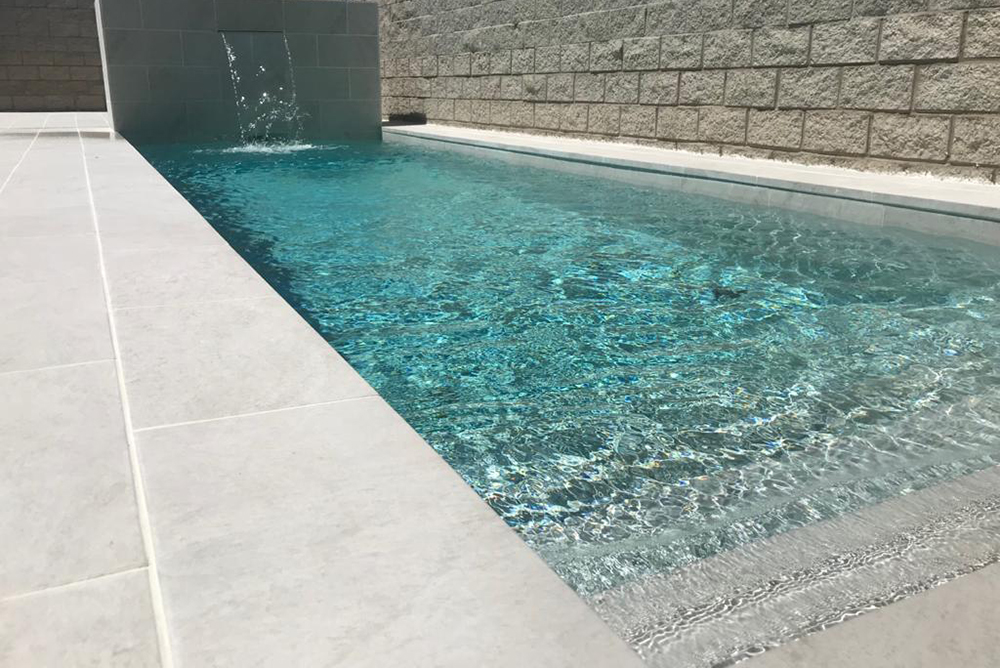Currently, the concern about the spread and proliferation of the coronavirus leads us to take extreme precautions throughout our environment and the pools seem to be seen as a hostile environment.
Today we echo the recommendations that the employers of the swimming pools sector (ASOFAP) does about the maintenance of the pools in the technical note which has been submitted to the Ministry of Health for validation.
A PROPERLY TREATED POOL IS A SAFE PLACE AGAINST CORONAVIRUSES
The fundamental question is, if the chlorination of the pool is carried out following the current recommendations and applying the best practices, is it sufficient to deactivate the COVID-19 virus?
The answer is yes.
Optimal water quality is achieved in a conventional pool with a good hydraulic and filtration system that respects its maximum occupancy level, with a chlorine level of ≥0.5-1 mg / l throughout the pool.
In other words, with a free chlorine level of ≥0.5-1 mg / l, the water is not only disinfected, but also has disinfecting potential to eliminate any virus or germ that may enter the water.
Pool automation is highly recommended for added peace of mind. (Otherwise, the responsibility for the health of the users falls entirely on the manager of the pool.)
Likewise, it is essential to regularly measure the main parameters (pH value and free chlorine level (DPD-1), either manually or automatically.
Treatment for coronavirus in residential pools and semi-public pools:
Chlorine tablets or liquid chlorine products can be used to obtain the proper level of free chlorine in the pool water. It is recommended to automate the dosing and control process. Another good alternative is to use saline electrolysis devices that automatically generate free chlorine from salt dissolved in the pool water.
To extend the disinfection spectrum, as an extra level of protection and to correct possible errors in the manual disinfection process, an ultraviolet (UV) light can be installed to disinfect pool water (in combination with dosed chlorine or saline chlorination) .
In semi-public pools, which tend to have a higher flow than residential pools, it is recommended to install an automation system, as well as online measurement of the main parameters with an intelligent pool analyzer.
Treatment for coronavirus in commercial pools for public use:
To maximize safety, automation of the three phases is recommended: pH regulation (1), disinfection (2) and constant measurement (3).
- A correct regulation of the pH between 7.2 and 7.6 by means of acids or CO2 is essential to guarantee effective disinfection.
- To broaden the disinfection spectrum, the use of ultraviolet light in combination with dosed chlorine (in tablets or liquid) or salt electrolysis is recommended.
- Constant measurement of pH and chlorine levels as well as automatic regulation of these parameters is essential in Public swimming poolss.
Recommendation: Show the measurement results to the users, so that they are fully informed of the water quality.
Should users take extra precautions that they did not take before?
As in our daily life, we recommend maintaining adequate personal hygiene. For example, if there may be a risk of having touched surfaces, such as locker room benches, doors or knobs, it is recommended to wash your hands and / or sanitize them with disinfectant before entering the pool.
We recommend bathers to always shower before and after swimming in the pool. It is also recommended to wash suits and bath towels, to eliminate all bacteria or viruses.
In addition to the pool water, it is recommended to keep the outdoor areas of the pool disinfected, as well as its equipment, such as showers, stairs, etc. applying products specially indicated for this use.
